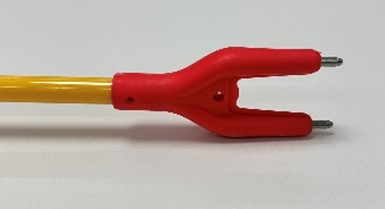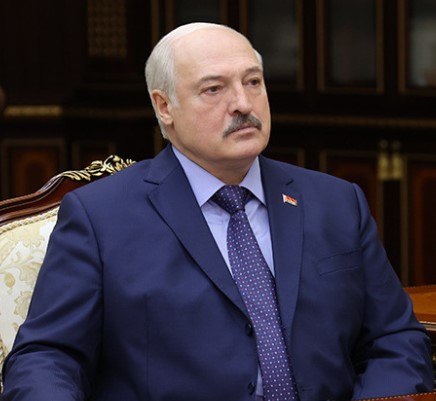New Youth Laboratory of DNA Technologies in Animal Husbandry Opens

The laboratory is headed by Veronika Kharzinova, a candidate of biological sciences and leading researcher.
"The list of the main types of agricultural, domestic and domesticated animals for which the panels of microsatellites recommended by ISAG/FAO are proposed includes the following species: cattle , pigs, goats, sheep, horses, camels, dogs and cats. At the same time, conducting a genetic examination of breeding producers of other important types of agricultural animals and poultry is also a necessary condition for conducting selection and breeding work. In this regard, our attention will be focused, including on conducting a genetic examination of breeding producers of reindeer, marals, yaks, geese," said Veronika Kharzinova.
The creation of a new youth laboratory is the result of long-term and fruitful work that has been carried out for more than 9 years.
Thus, a team of researchers from the FGBNU FRC VIZh named after L.K. Ernst, headed by the DIRECTOR of the Center, Academician of the Russian Academy of Sciences Natalia Zinovieva, has been conducting genetic studies of Russian reindeer populations since 2015. As a result, scientists have created a system for monitoring the reliability of the origin and assessing the biodiversity of Russian reindeer populations, based on the analysis of the polymorphism of 9 microsatellites.
Elements of the test system have already been successfully implemented in reindeer herding enterprises of domestic reindeer in the following northern Russian regions: Nenets Autonomous Okrug, Yamalo-Nenets Autonomous Okrug, Chukotka Autonomous Okrug, Murmansk Oblast, and the Komi Republic. Thus, from 2015 to 2023, molecular genetic testing was carried out on 2,902 domestic reindeer. The results obtained have become a key step in optimizing and improving the technologies of selection and breeding work in the reindeer herding industry - they contribute to its transition to a qualitatively different level from a scientific and practical point of view.
Read together with it:
- Новые горизонты сотрудничества: Россия и Аргентина обсуждают совместный доступ на рынки продукции животного происхожденияОдной из ключевых тем конференции стал контроль за производством ветеринарных препаратов в Аргентине. Аргентинская сторона представила свою систему контроля, включающую Управление ветеринарных продуктов и Управление лабораторий животных. Эти организации обеспечивают высокие стандарты безопасности, так как каждая производственная единица подвергается проверкам каждые 3-5 лет и зарегистрирована в ин...
- Матричные РНК-вакцины от COVID продлили жизнь тяжелых раковых больныхМатричные РНК-вакцины против коронавируса продлили жизнь пациентам, больным раком в самой тяжелой, четвертой стадии, сообщает The Washington Post. К такому выводу пришли исследователи Онкологического центра имени М. Д. Андерсона Техасского университета и Университета Флориды. «Эти данные невероятно интересны, но они должны быть подтверждены в ходе третьего этапа клинических испытаний», — заявил од...
- The quarantine for farm animals due to leukemia has been lifted in the village of Gusevo.As of October 21, 2025, the restrictions were lifted due to an improvement in the clinical situation on farms. Specialists conducted the necessary laboratory tests and treatment procedures, confirming the absence of infected animals. As a result, livestock owners can now freely sell MILK and MEAT , as well as transport animals outside their communities.......
- Golden Autumn 2025: Volgograd Region Expands CooperationAt the 27th Russian Agro-Industrial Exhibition "Golden Autumn 2025," the Volgograd Region signed eight cooperation agreements. The Volgograd Region Committee on Agriculture and the Russian self-regulatory organization of audit unions of agricultural cooperatives, the Agrokontrol Union, signed a bilateral agreement. The parties will jointly address issues related to the development of the region's ...
- Chinese scientists have discovered a new natural meat preservative.In an experiment, cinnamon oil effectively inhibited the growth of Shewanella putrefaciens, a microorganism responsible for the decay of protein products even at low storage temperatures. Even at minimal concentrations, the oil inhibited bacterial growth, damaged their internal and external membranes, disrupted cell integrity, and caused protein and nucleic acid leakage. Additionally, the essentia...
- Russia is developing a new swine flu vaccine based on two strains.The vaccine is being developed using two strains: pandemic H1N1 and classical H3N2, isolated in the Kursk region and Udmurtia. According to Dmitry Biryuchenkov, HEAD of the swine disease prevention laboratory at the All-Russian Research Institute of Animal HEALTH, the vaccine has already demonstrated high efficacy and safety for pregnant sows and piglets. Development is expected to be completed in...
- Exports of animal products from the Penza region are growing rapidly.In addition, 438 tons of confectionery products, as well as 240 tons of dairy products, were exported from the region to Oman, Iraq, and other countries. All goods underwent laboratory testing at accredited veterinary institutions to confirm their safety. After loading, specialists compiled veterinary and sanitary inspection reports and replaced previously issued veterinary certificates with stand...
- About shashlik, point of view, and dragons. An interview with Academician D.A. Baimukanov.PIONERPRODUKT.by continues its series of interviews with the eminent Kazakhstani scientist Dastanbek Asylbekovich Baimukanov , recorded by his younger brother, Syzdyk Asylbekovich Baimukanov. The first interview is titled: "A Story of Shepherds, Sheep, and Freedom . " The second interview is titled: " On Beshbarmak, Money, MEAT, Traditions, Genetics, and Selective Breeding." We remind you that num...





























































